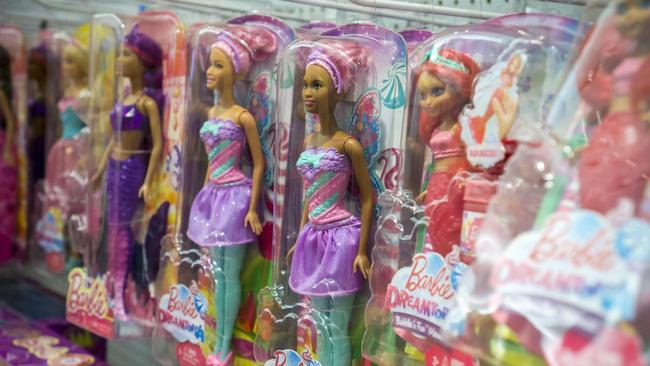Why we need Toys ‘R’ Us to stick around
SURE, its name is a grammatical nightmare, but Australian parents need stores like Toys ‘R’ Us now more than ever, writes James Morrow.

Rendezview
Don't miss out on the headlines from Rendezview. Followed categories will be added to My News.
WHEN I was a child — yes, I was once a kid, much to the surprise of friends who imagine I was born asking for a light for my cigar — I detested the Toys ‘R’ Us chain of stores.
Not so much for its inventory, because I was in fact as much of a sucker for Matchbox cars and Lego sets as the next young fellow, but for its name.
It wasn’t long after I learned my ABCs that I also learned to loathe those who abused them. Not surprisingly, I found the Toys ‘R’ Us logo particularly offensive.
“Why isn’t it ‘We Are Toys’?”, I would wonder, “and why must they associate childhood with not being able to write an R correctly?”
Yes, I really did think like this. Just ask my father.
So it was with mixed emotions that I read the news this week that the chain is shutting down in the US, and that Australia’s Toys ‘R’ Us outlets are also at risk — and along with them some 2700 jobs.

As nice as it is to think that bad grammar always gets its comeuppance, the death of a toy store is a bit of a worry.
Because not to sound like Socrates and Plato complaining about kids these days, it seems that in our lifetimes the fundamental nature of play has changed in a fundamental way that may not bode well for the future.
I’m not so much talking about the shift from free range to helicopter parenting, though that is important.
Rather, it seems that toys — physical things — that challenge and delight are giving way to apps and screens and games. Some are surely educational, some are just entertaining, and some — such as Fortnite: Battle Royale, which as The Daily Telegraph reported yesterday is driving parents spare — are just addictive kill-fests.

This month Danish toy brickmaker Lego announced that sales had fallen for the first time in 13 years and were looking at ways to integrate their very physical (as anyone who has stepped on one in the middle of the night will attest) product into the digital world.
Now, there is plenty of space for children to use learning apps and touchscreens and the like, though despite what some parents think, a toddler who can unlock mummy’s iPad and find a Wiggles video is not necessarily bound for Harvard Medical School.
But a growing body of research suggests that screen time is addictive both for kids and parents alike, with too much leading to passivity and damage to creativity and social skills.
Even with just a TV playing in the background, researchers at the University of Wisconsin have found that children played with their toys for shorter periods and in less in-depth ways.
This is a huge shift in human development: archaeologists in Turkey last year found a toy chariot from the Bronze Age 5,000 years ago, suggesting that even the ancients knew kids needed something to roll around on the floor.
James Morrow is opinion editor of the Daily Telegraph.



